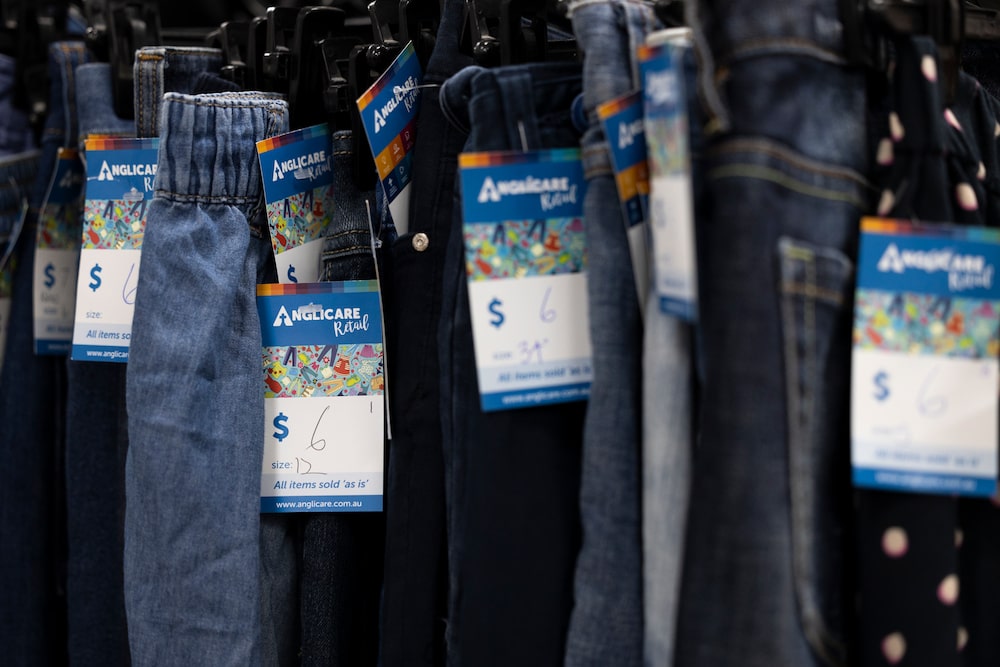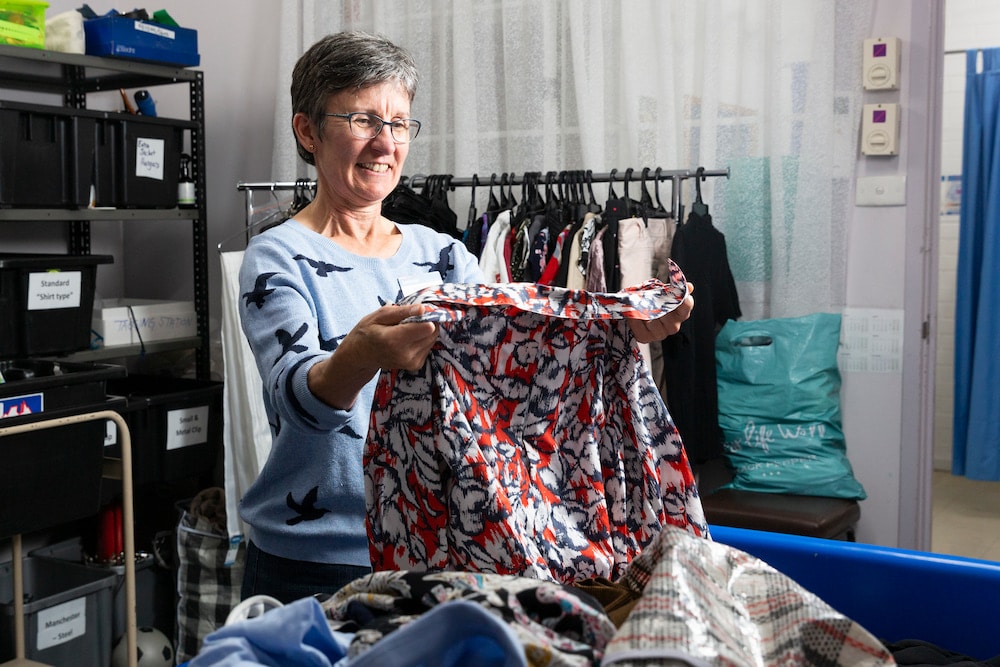Anglicare Retail Phillip store supervisor Sarah Hubert says she and her team of volunteers can only sell a fraction of the clothing that comes through the front door of their op shop.
“Probably only about 30% is saleable,” she says.
“There’s a lot of things that we can’t use that go to landfill.”
The charity store’s team does its best to recycle or rehome donations that aren’t suitable for a spot on the shelves.
“Things like old towels, people from refuges will come and give us a token for those; or I drop them at the vets occasionally, because people who care for animals are always needing cotton.”
When that’s not possible, Anglicare Retail sells what it can to a third party that repurposes textiles.

Sarah’s top tip on Global Recycling Day is to wash every item before donating, to ensure it’s in good enough condition to live another life.
Her charity shop can’t wash donations, and items that have a bad smell, mould, or are heavily soiled go straight to landfill.
Back in 2009-10, over 500,000 tonnes, or 88%, or leather and textiles were sent to landfill in Australia, according to the Australian Bureau of Statistics (ABS).
A decade later, most textiles and leather still end up in landfill, as indicated by 2018-19 statistics, with just a quarter of leather and textiles sent for recycling, used for energy production or exported.
Households contribute nearly 90% of all textiles waste, with ABS data indicating each Australian sends an average of 23kg of textiles to landfill each year.
Sarah is passionate about sustainability and the role op shops play in the recycling process.
“It’s the reason I work here.”
Sarah recalls a video of teenage environmental activist Greta Thunberg saying she wants “the adults to panic and do something now”.
“That’s why I’m working here, because it’s a very small part of my panic – to sort of save the world through my shop.”
Anglicare Retail is “very much a community shop”, and staff know plenty of regulars.
“Having an op shop, as well as saving the clothes, gives people the opportunity to have the dignity to spend the money that they have on what they want.”
Although the store doesn’t have a specific program for low-income shoppers, staff intentionally set affordable prices.
“Because the prices are very low, we do have people who we know are on low incomes come in, and they’re very happy spending what they’ve got rather than having to ask for something.”
According to Charitable Recycling Australia, the revenue created by donations translates into $550 million towards charitable mission and social welfare programs annually.
To donate or get involved visit anglicare.com.au.
For more news:



